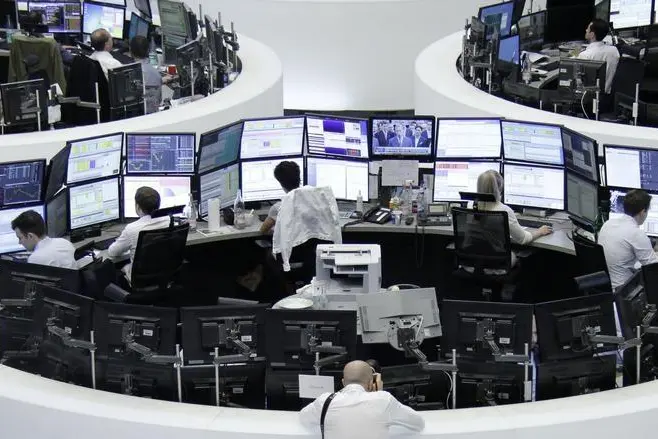PHOTO
BERLIN - Germany foresees much lower borrowing costs because of record-low yields, and that could create a windfall of roughly 5 billion euros this year, maybe more, three people familiar with Berlin's budget planning told Reuters on Thursday.
In its 2019 federal budget, Chancellor Angela Merkel's government has initially earmarked 17.6 billion euros ($19.36 billion) for debt servicing.
But the European Central Bank's loose monetary policy and worldwide demand for safe-haven bonds mean Berlin now expects to pay 10 billion to 13 billions euros, a person familiar with the budget planning told Reuters on condition of anonymity.
Two other budget experts said borrowing costs could come in at 12 billion to 13 billion euros at the end of this year.
From January to June, German borrowing costs reached only 4.9 billion euros, a Finance Ministry document showed. Berlin actually made money on its old debt in March, May and June as yields fell below zero.
A spokeswoman for the finance ministry declined to comment on the estimated figures, saying that the ministry would not participate in any speculation. No conclusions could be drawn for the second half of the year from the borrowing costs in the first half, she said.
"THANK DRAGHI"
The Finance Ministry document also showed that Germany's borrowing costs have plunged since ECB President Mario Draghi's famous "whatever it takes" speech in 2012, which calmed markets and was followed by an unprecedented programme of bond purchasing.
Berlin's borrowing costs dropped from 40.2 billion euros in 2008 to 30.5 billion euros in 2012 and finally to 18.2 billion euros last year, the document showed.
Budget lawmaker Sven-Christian Kindler from the opposition Greens said that since the financial crisis in 2008, Germany had saved more than 160 billion euros through the ECB's low interest rate policy.
Former conservative Finance Minister Wolfgang Schaeuble and his centre-left successor Olaf Scholz should thank Draghi for this gift, Kindler said, adding that the wide-spread criticism of the ECB among German conservatives was hypocritical.
"The truth is: Sticking to the black zero policy of balanced budgets and at the same time demanding higher interest rates, that does not fit together economically," Kindler said.
He called on Merkel and Scholz to ditch their balanced budget policy and boost public investment through new debt. "Only if governments across Europe invest more, the ECB can change its monetary policy," Kindler added.
Otto Fricke, chief budget lawmaker from the opposition business-friendly Free Democratic Party, said borrowing costs were likely to come in lower than expected this year.
He cautioned, however, that the possible windfall could be partly eroded by weaker-than-expected tax revenues as the German economy is teetering on the brink of recession.
(Reporting by Michael Nienaber, editing by Larry King Editing by Paul Carrel) ((michael.nienaber@thomsonreuters.com; +49 30 2888 5085; Reuters Messaging: michael.nienaber.reuters.com@reuters.net www.twitter.com/REUTERS_DE www.reuters.de))





















